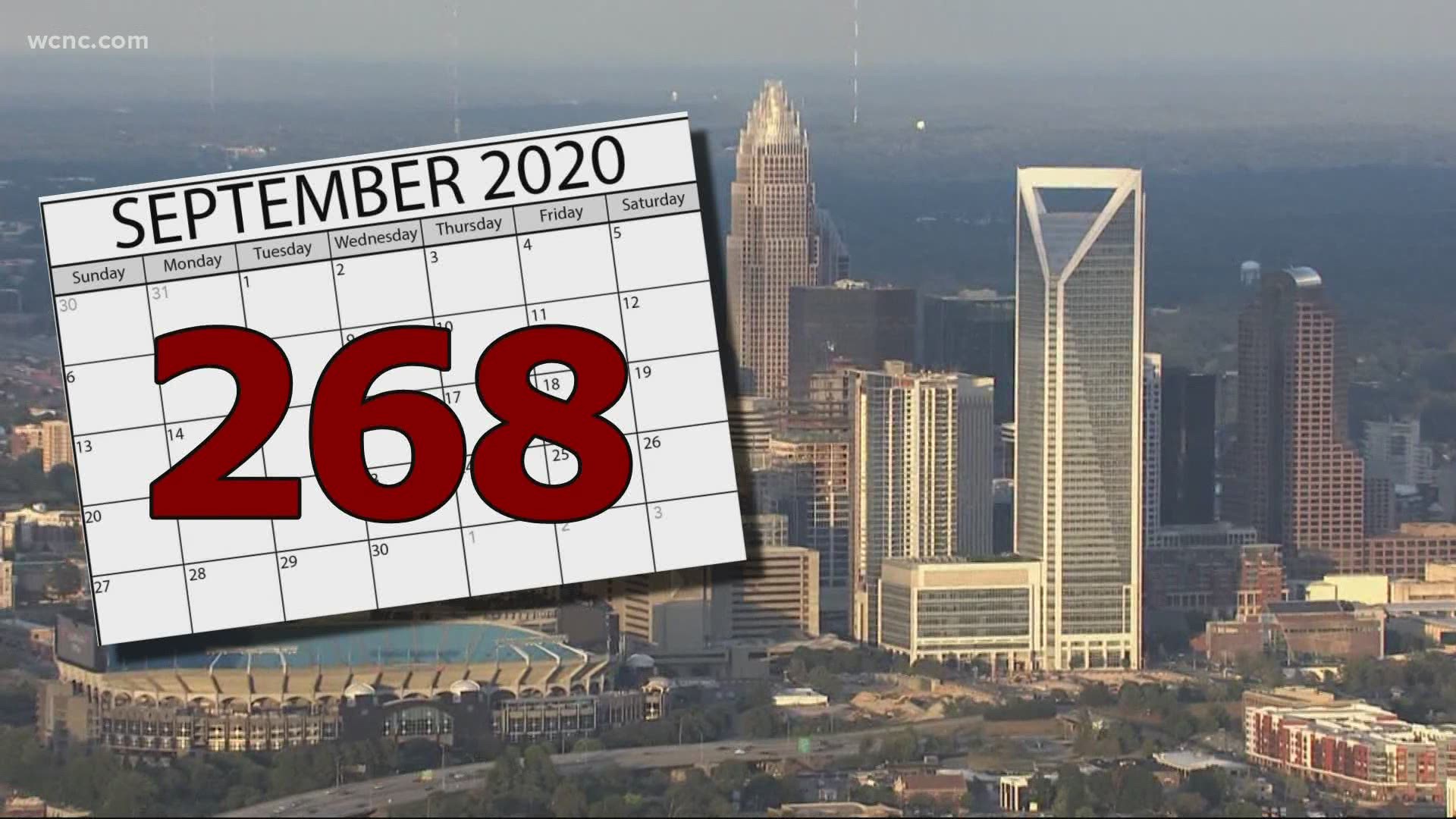CHARLOTTE, N.C. — Governor Roy Cooper has signed a new executive order to prevent evictions of North Carolinians who can’t afford their rent.
But many property owners and landlords say it leaves them out to dry.
In the order issued Wednesday, Governor Roy Cooper says an estimated 300,000 - 400,000 households in North Carolina are currently unable to pay rent.
A CDC order issued in early September put a halt on evictions nationwide, but in his order, Cooper says many tenants weren’t aware of the protection, so they were evicted anyway.
Data requested by WCNC shows the Mecklenburg County Sherriff's Office executed 268 evictions in September, and more than 150 in the first few weeks of October.
The MCSO said in an email to WCNC: "The Mecklenburg County Sheriff’s Office (MCSO), as do all North Carolina Sheriff’s Offices have a statutory obligation for the service of civil process...his is not a discretionary decision that Sheriff McFadden can choose to enforce, the serving of civil process is a constitutional mandate of the Office of Sheriff and MCSO will always adhere to the law."
Many say the eviction moratorium is unclear and had led to significant confusion for both renters and property owners.
“It's really difficult to know what you're supposed to do here and to know what your rights are. And there's a lot of confusion," said Caleb Kruckenberg, litigation counsel for the New Civil Liberties Alliance (NCLA).
The NCLA is currently leading the litigation against the CDC and several states with similar orders, on the grounds that it’s crushing landlords.
“The only legal way a landlord can take their property back is by going to court getting an eviction order and having a sheriff execute the eviction," Kruckenberg explained. "And the CDC order says that's now a federal crime. And now the new executive order in North Carolina says the same thing, that not only is it a federal crime, but it's also now a state crime if you even try to file the paperwork.”
The eviction moratorium only protects people who can’t pay specifically because of COVID. Renters need to prove that, and they’re still on the line to pay any back rent eventually.
But for now – eviction proceedings are essentially halted through the end of 2020 unless one of many pending lawsuits overturns it.
"We challenged it in federal court in Atlanta, there are other lawsuits pending. And we think that we're going to prevail," Kruckenberg said.
There is some assistance available for people who are struggling.
The NC hope program launched in early October to help pay people’s rent and utilities.
Renters who need rent or utility assistance can apply online at nc211.org/hope. Applicants who cannot access the online application can also call 2-1-1 and speak with a program representative, who will assist the caller through the application on the phone.
Callers can reach 2-1-1 Monday-Friday between 7 am and 6 pm.

